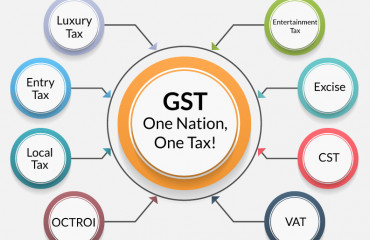
The trend indicates the escalating tussle between tax authorities and businesses when the government’s revenue needs and business’ liquidity requirements are high
NEW DELHI : Businesses and tax authorities are increasingly sparring over actions related to collecting goods and services tax (GST), with companies actively seeking court protection from recovery proceedings. The rise in litigation comes at a time the new indirect tax system has seen record tax collections in recent months.
At least a dozen writ petitions have been filed by businesses in various courts seeking protection from "coercive action" by GST authorities. At least three orders accessed by Mint show that courts have prevented GST authorities from taking such action till specified periods. The trend indicates the escalating tussle between tax authorities and businesses when the government's revenue needs and business' liquidity requirements are high.
GST collections touched a record high of ₹1.68 trillion in April against a previous high of ₹1.42 trillion in March, which the government attributed to improved compliance.
An order by the Bombay high court on 11 January in the case of a US-based cloud computing and internet infrastructure company said: "The respondents (Union of India) shall not take any coercive steps against the directors of the petitioners…."
Similarly, in the case of an online gaming company, an order by the high court of Punjab and Haryana on 29 September 2021 said "no coercive steps would be taken against the petitioner till such time the necessary clarification is issued by the empowered group of ministers..."
Lawyers said that in various cases, companies complain that steps are taken by the authorities to recover the money before issuing a show-cause notice.
"This action is not provided anywhere in the statute and, hence, the situation requires judicial intervention," said Abhishek A. Rastogi, partner at Khaitan and Co., which has taken many such matters before various jurisdictional courts. "The GST framework is very robust to provide for appellate and adjudication process and hence, any deviation from the law must be taken to the court so that the adjudication is fair," Rastogi added.
Queries emailed to the spokesperson for the finance ministry on Monday remained unanswered till press time.
M.S. Mani, a partner at Deloitte India, said multiple changes made to GST since its introduction and varying decisions by the Authority of Advance Ruling in some states have led to businesses seeking relief from courts. "In addition, the concerted action of GST authorities to compare the sales and purchase data across databases for specific businesses has also led to a spurt in businesses approaching courts for relief," he added.
Pratik Jain, a partner at Price Waterhouse LLP & Co LLP, said there has been an unprecedented increase in GST investigations and recovery proceedings over the last few months.
"Many a time, amounts are being recovered on the spot without issuing a show-cause notice. The authorities surely have a right to carry out investigations where there is suspected evasion, but often, interpretive issues are also picked up. The GST Council should examine the manner in which the powers of investigations are exercised and issue detailed guidelines in this regard," Jain said.
Rajat Mohan, a partner at AMRG Associates, said the GST authorities, especially audit, anti-evasion and intelligence wings, have swung into action leading to departmental visits in the form of inspection, search and seizure.
